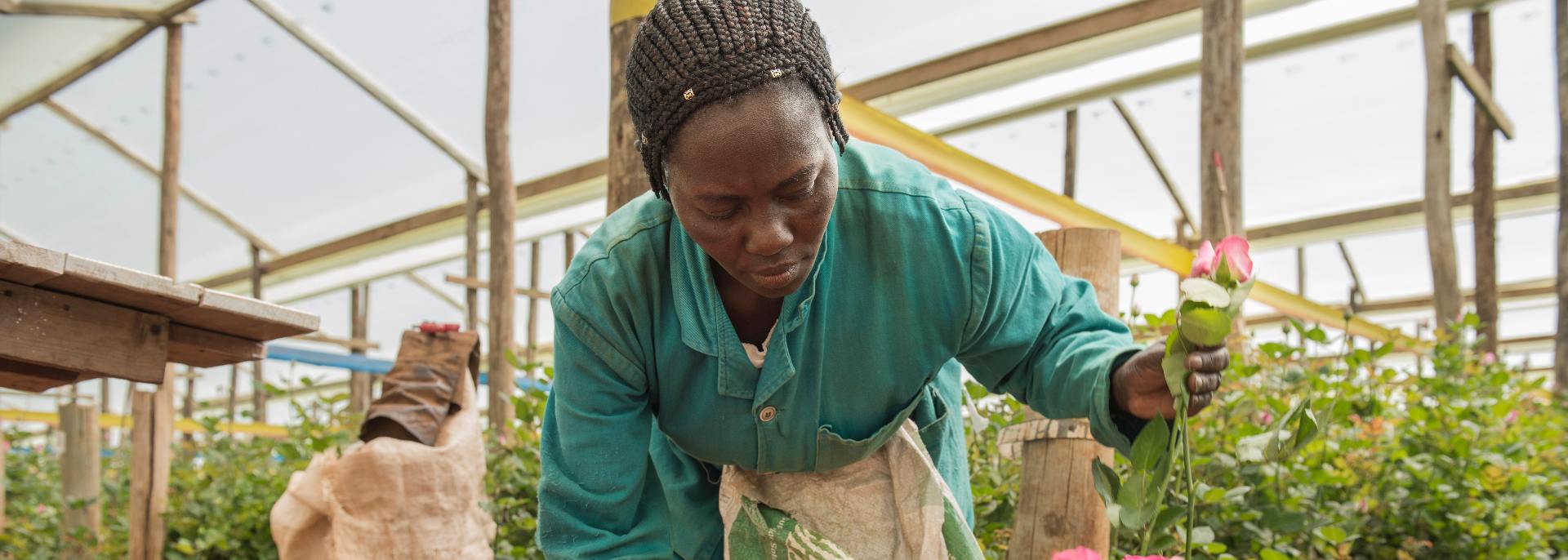By Imungu Kalevera, Program Associate, Women@Work Campaign
Marking its 29th year of observance and action, the Global 16 Days campaign is the longest running campaign against sexual and gender-based violence against women. Happily, in June 2019, the International Labour Organization (ILO) adopted the Violence and Harassment Convention C190. This marked the culmination of years of campaigning by the Center for Women’s Global Leadership (CWGL) and the broader women’s movement, particularly individual feminists and women’s rights organizations. The result is a comprehensive global standard for preventing, addressing and redressing violence and harassment affecting women at the workplace.
Since then, the campaign has shifted its focus to ratification. The 2020 campaign continues to call for ratification, but with a special focus on informal women workers whose lives and livelihoods have been acutely impacted by COVID-19.
Informal women workers and Covid-19
Women in the informal economy – some 740 million – face unsafe workplace conditions and are typically excluded from national labor laws and denied social protection. They constitute a work force over-represented in the most precarious and under-paid roles: domestic workers, home-based workers, street vendors, agricultural workers, waste-pickers, and sex workers.
And now, the coronavirus pandemic has exacerbated the socio-economic inequalities and gender-based violence they normally face. Women and girls across the globe have been confined to homes with their abusers; homes which in some cases are also their workplace. The world over, this pandemic has presented an enormous threat to women’s financial, emotional, physical and mental health, and to their security.
Yet there is also a lesson to be learned from the pandemic. It shows us how important it is to have strong, stringent and enforced policies against gender-based violence and harassment. The rallying call for all member states of the ILO to ratify Convention 190 should continue to grow louder after this year. If ILOC190 is the fruit, then the grassroots work by individual champions, front-runners and other duty bearers is the seed.
Turning to East Africa
On the African continent, agriculture, and particularly horticulture, contributes highly to national GDPs. This is especially true of East African countries. Employment within this sector is largely informal, and women make up to 70 percent of the workforce, often in the lowest skilled and lowest paid roles. Due to this gender power imbalance, and the already dominant patriarchal structures in society, women in the sector are also disproportionately affected by sexual harassment.
Hivos’ revealing baseline study on sexual harassment
The unsettling prevalence of sexual harassment in the East African horticulture sector came to light a few years ago. The Hivos Women@Work campaign, building on the previous work of Women Working Worldwide and Worker’s Rights’ Watch (Kenya), commissioned a baseline study in 2015 that revealed the true extent of sexual harassment in East Africa’s cut flower industry. Its disturbing findings in Kenya and neighboring East African countries demonstrated the need for a concerted effort aimed at improving the overall labor conditions of women working in horticulture.
The Women@Work campaign motivated many different stakeholders to ensure dignity for women at the workplace. This effort turned into a partnership that has resulted in 98 legal and policy propositions on decent work brought before national governments and intergovernmental agencies and organizations. Amongst these were: passing a new labor law in Ethiopia and accepting 60 social qualification standard recommendations by the horticultural crops directorate in Kenya. These policy proposals at national level contributed to the global recommendations that formed ILOC190.
Women@Work’s model anti-sexual harassment policy
The Women@Work campaign has also seen over 180 horticultural companies in Kenya, Uganda, Tanzania, Rwanda and Ethiopia adopt gender-responsive policies that protect women workers. Perhaps the campaign’s proudest moment was developing a model anti-sexual harassment policy for the sector –a first of its kind. Over the years, campaign partners have also made capacity building of women workers a priority. These programs informed them about their rights and empowered them to take action and call for decent work. Campaign partners have trained thousands of women workers in leadership, negotiation, financial literacy, labor rights, and identifying as well as addressing sexual harassment. The campaign’s policy level interventions, coupled with individual awareness and action, have seen workers raise their grievances, identify violations and call management and each other to task.
Where there’s a will, there’s a way
The success of the Women@Work campaign has largely been due to the willingness of front-runner farms to commit to creating safe workspaces. Cumulatively, hundreds of farms have adopted the Women@Work model policy or drafted their own policies to create a safe and dignified work environment. These include 19 farms in Ethiopia, 7 in Tanzania, and 12 in Uganda. In Kenya, over 130 farms under the Kenya Flower Council committed to implementing the provisions and standards of this model policy in the text of their certification audit standards. In the end, a combined approach balancing constructive dialogue with necessary critique, in close cooperation with local partners, has been key to the success of the program.
Hot on the heels of the #MeToo movement, the push for global ratification of ILO C190 and the worsening violence against women during the coronavirus pandemic have made it clear that no effort aimed at protecting women is an effort in vain. Although the Women@Work campaign is drawing to a close, its work must continue, 16 days and beyond.




